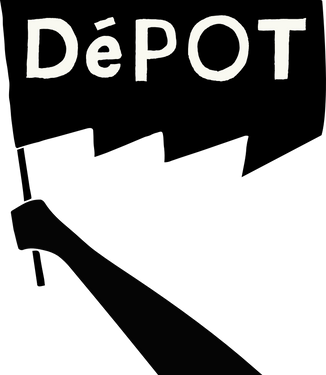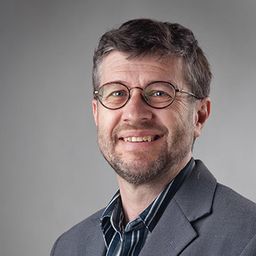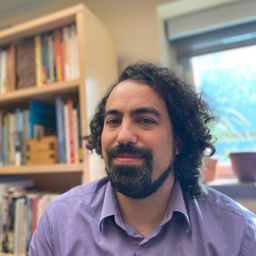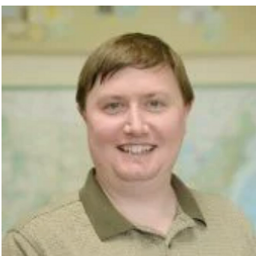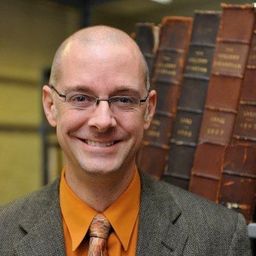
Elisa Rubalcava
Elisa completed her Bachelor's degree in Architecture in Mexico, specializing in the field of heritage conservation. She worked on the conservation of the 16th Century Mexican Monasteries designated by UNESCO before pursuing her postgraduate studies in the Conservation of Monuments and Historic Sites at the Polytechnic University of Catalonia, Spain. Elisa was the conservation architect for the restoration and rehabilitation work at Museo del Acero “Horno 3” (Blast Furnace No.3) in Monterrey Mexico, a national industrial heritage site.
Since 2016, Elisa has worked within the Conservation and Construction Services program area of the Historic Resources Management Branch, responsible for undertaking conservation and environmental management work on nine historic sites owned by the Government of Alberta. Four of these are Industrial heritage sites that preserve historic infrastructure related to natural gas production, coal mining and irrigation farming. Turner Valley Gas Plant, a Provincial Historic Resource of Alberta and National Historic site of Canada is particularly significant as it is located in western Canada’s largest oil field and is considered a birthplace of Alberta’s energy industry, extracting and processing natural gas from 1914 until 1985.
Sessions auxquelles Elisa Rubalcava participe
Jeudi 1 Septembre, 2022
This session will bring together four specialists in the history of the production of oil and petroleum, natural gas, coal and nuclear energy, to debate the distinct as well as shared issues around the study and protection of their industrial heritage. The history of energy production is characterized by groundbreaking technological advances and achievements, enormous technological, social and environmental consequences, and the evolution of distinctive landscapes and communiti...
Sessions auxquelles Elisa Rubalcava assiste
Non planifié
After 25 years of the launching of the first Latin American Industrial Heritage's organizations (México, Cuba, Argentina, Chile, Venezuela, Perú, Colombia, Brasil, Uruguay, Guatemala, Ecuador) we propose a general balance of the state of the art in the region and the future of the conservation and retooling of the industrial heritage in the covid19 aftermath. This regular session highlights four axes of discussion and comparative studies: 1) The legal framework of the policies of conservat...
Dimanche 28 Août, 2022
Joignez-vous aux organisateurs du congrès et aux membres du board de TICCIH pour un cocktail de bienvenue et quelques mots festifs de présentation, dans l’ancienne forge de l’École technique de Montréal, fondée en 1909, aujourd’hui intégrée au campus de l’Université du Québec à Montréal.
Lundi 29 Août, 2022
This session is about the “hard facts” of conservation. It aims to draw together technical knowledge from related fields. Industrial conservation specialists rely on specialised knowledge and may sometimes not be aware that there is expertise and proven good or best practice in related fields. The transferring of knowledge from related engineering, construction preservation and architectural conservation specialists can serve the purpose of promoting and securing future preservation of ...
During the Industrial Revolution coal was the most important energy source for both homes and industries. At the time, coal mining created strong regional industrial identities and mentalities, as well as industrial images and imaginaries in the eyes and minds of external observers. Such identities and ideas of coal would go on to shape industrial landscapes and communities.The papers presented in this session will investigate the social and economic changes that were triggered by t...
This session is about the “hard facts” of conservation. It aims to draw together technical knowledge from related fields. Industrial conservation specialists rely on specialised knowledge and may sometimes not be aware that there is expertise and proven good or best practice in related fields. The transferring of knowledge from related engineering, construction preservation and architectural conservation specialists can serve the purpose of promoting and securing future preservation of ...
During the Industrial Revolution coal was the most important energy source for both homes and industries. At the time, coal mining created strong regional industrial identities and mentalities, as well as industrial images and imaginaries in the eyes and minds of external observers. Such identities and ideas of coal would go on to shape industrial landscapes and communities.The papers presented in this session will investigate the social and economic changes that were triggered by t...
This roundtable will examine innovative and creative pedagogical approaches and partnerships that have created opportunities for experiential learning and community engagement, while enabling successful delivery of programs and courses in industrial heritage. In recent years and with the ongoing situation with the COVID-19 pandemic, undoubtedly online and distance teaching and learning are a top priority. The discussions will offer an analytical dialogue on digital learning strategies and ...
During the Industrial Revolution coal was the most important energy source for both homes and industries. At the time, coal mining created strong regional industrial identities and mentalities, as well as industrial images and imaginaries in the eyes and minds of external observers. Such identities and ideas of coal would go on to shape industrial landscapes and communities.The papers presented in this session will investigate the social and economic changes that were triggered by t...
This session is about the “hard facts” of conservation. It aims to draw together technical knowledge from related fields. Industrial conservation specialists rely on specialised knowledge and may sometimes not be aware that there is expertise and proven good or best practice in related fields. The transferring of knowledge from related engineering, construction preservation and architectural conservation specialists can serve the purpose of promoting and securing future preservation of ...
Dans une ambiance traditionnelle du temps des sucres québécois, profitez d’une tire d’érable roulée sur neige dans la plus pure tradition, accompagnée d’une musique de circonstance !
Si la vallée du canal de Lachine a été le berceau de l’industrialisation canadienne, la géographie industrielle métropolitaine ne s’y est pas confinée, peu s’en faut, Outre les grandes concentrations d’entreprises des quartiers centraux, elle est constituée des réseaux infrastructuraux, d’une douzaine de centrales hydroélectriques et des ensembles manufacturiers disséminés dans une quinzaine de petites villes aujourd’hui intégrées dans l’aire métropolitaine. La conférence proposera un surv...
Joignez-vous à nous pour poursuivre de manière informelle la discussion lancée lors de la conférence publique.Une consommation sera offerte aux quinze premières personnes arrivées.
Mardi 30 Août, 2022
Cette session nous permettra d’explorer à travers neuf cas d’études internationaux les différentes stratégies de mise en valeur de patrimoines industriels ainsi que leurs impacts sur les communautés et leur territoire. L’analyse de musées, d’espaces culturels, de parcours et d’aménagements urbains sera l’occasion de mettre en relief les questionnements d’identité, de sens, de pertinence et d’impacts qui animent l’ensemble des acteurs de ce patrimoine en transformation. ...
Drawing on case studies from diverse social, cultural, and political contexts the papers in this session discuss the different responses to maintaining and assessing not only the physical sustainability of industrial heritage but also the sustainability of its social values and meaning.
Industrialization processes have been global from their very beginning. However, their interpretation still tends to be limited to specific locations or regions, and to specific time periods. Regularly, for example, it is stated that the industrial revolution started in Europe, from where it spread to the world, supposedly bringing technological and social progress to „less developed“ countries. Earlier periods of technology and knowledge transfer processes, that were already in place in t...
After 25 years of the launching of the first Latin American Industrial Heritage's organizations (México, Cuba, Argentina, Chile, Venezuela, Perú, Colombia, Brasil, Uruguay, Guatemala, Ecuador) we propose a general balance of the state of the art in the region and the future of the conservation and retooling of the industrial heritage in the covid19 aftermath. This regular session highlights four axes of discussion and comparative studies: 1) The legal framework of the policies of conservat...
It is widely accepted that understanding a historic place is a critical first step to guide subsequent management and conservation. Industrial sites present a number of challenges as understanding their form, function, design, boundaries, and conservation often requires a high degree of technical expertise and experience. In Canada, gaining this expertise and information sharing is hampered by a limited number of institutions offering training in industrial archaeology and the lack of a na...
This session focuses on company towns from the perspective of urban planning. “Company towns” are here defined as single-enterprise planned communities, usually centered around a single industry, where a company commissions an urban plan, builds housing for its workers, and sets up recreational, commercial, institutional or community facilities. While these are now endangered by a second wave of deindustrialization, we observe that, aside studies or monographs of individual towns that popu...
Drawing on case studies from diverse social, cultural, and political contexts the papers in this session discuss the different responses to maintaining and assessing not only the physical sustainability of industrial heritage but also the sustainability of its social values and meaning.
Cette session nous permettra d’explorer à travers neuf cas d’études internationaux les différentes stratégies de mise en valeur de patrimoines industriels ainsi que leurs impacts sur les communautés et leur territoire. L’analyse de musées, d’espaces culturels, de parcours et d’aménagements urbains sera l’occasion de mettre en relief les questionnements d’identité, de sens, de pertinence et d’impacts qui animent l’ensemble des acteurs de ce patrimoine en transformation. ...
It is widely accepted that understanding a historic place is a critical first step to guide subsequent management and conservation. Industrial sites present a number of challenges as understanding their form, function, design, boundaries, and conservation often requires a high degree of technical expertise and experience. In Canada, gaining this expertise and information sharing is hampered by a limited number of institutions offering training in industrial archaeology and the lack of a na...
According to Rodney Harrison, “in the spirit of greater cross-disciplinary engagement, there is […] a pressing need to pay more attention to non-anglophone (and, indeed, non-Western) heritage literatures, histories and traditions” (2013: xiii), when we deal with critical approaches to heritage. This need is even greater when the scientific research focuses on countries such as Romania, Czechia, Bulgaria or Poland where Industrial Heritage, for example, is ignored and where the mechanism an...
After 25 years of the launching of the first Latin American Industrial Heritage's organizations (México, Cuba, Argentina, Chile, Venezuela, Perú, Colombia, Brasil, Uruguay, Guatemala, Ecuador) we propose a general balance of the state of the art in the region and the future of the conservation and retooling of the industrial heritage in the covid19 aftermath. This regular session highlights four axes of discussion and comparative studies: 1) The legal framework of the policies of conservat...
Pendant cette pause déjeuner, vous pouvez venir discuter avec l'auteur de son dernier livre.Cette discussion aura lieu à la table DePOT, dans le hall principal de la conférence. DePOT fait référence au groupe "Deindustrialization and the Politics or our Time" ; on y examine les racines historiques et l'expérience vécue de la désindustrialisation ainsi que les réponses politiques à celle-ci. Il s'agit d'un projet de partenariat du CRSH regroupant 33 organisations partenaires et...
Pays continent, dont l’industrialisation s’est amorcée dès le 19e siècle, le Canada a vu à la faveur entre autres de la désindustrialisation et de la requalification urbaine, des pans importants de son patrimoine industriel être altérés ou encore détruits. Cela étant dit, même ainsi, il n’en demeure pas moins que ce pays possède encore aujourd’hui un patrimoine industriel significatif. Or, le Canada étant une confédération, la protection et la sauvegarde de cet héritage industri...
Cette session nous permettra d’explorer à travers neuf cas d’études internationaux les différentes stratégies de mise en valeur de patrimoines industriels ainsi que leurs impacts sur les communautés et leur territoire. L’analyse de musées, d’espaces culturels, de parcours et d’aménagements urbains sera l’occasion de mettre en relief les questionnements d’identité, de sens, de pertinence et d’impacts qui animent l’ensemble des acteurs de ce patrimoine en transformation. ...
Past efforts to conserve and interpret industrial heritage have rarely acknowledged the role of industry causing damaging environmental change. But todays obvious worldwide climate change inevitably impacts our thinking about conservation. This is why we propose a Roundtable session to encourage people to take a fresh look at environmental impacts of industrial heritage.Already in the 1970s narratives of industrial history as a succession of triumphs began to be qu...
Joignez-vous à nous pour poursuivre de manière informelle la discussion lancée lors de la conférence publique.Une consommation sera offerte aux quinze premières personnes arrivées.
Mercredi 31 Août, 2022
Visite de l’exposition permanente : À cœur de jour, grandeurs et misères d’un quartier populaire, qui retrace l’histoire d’un des plus anciens quartiers industriel et ouvrier de Montréal. Découverte de l’ancien bain Généreux, bâtiment rappelant une époque ou la majorité des logements ouvriers n’avaient ni bain ni douche. Présentation de quelques éléments du patrimoine du quartier sur le trajet entre l’...
L’Amérique du Nord compte un grand nombre de canaux historiques, qui ont été fermés à la navigation commerciale en raison notamment de l’évolution des transports (navire au plus fort tonnage, trains, camions, etc.). Si certains canaux historiques ont été comblés, oubliés ou désaffectés, plusieurs ont survécu, en entier ou en partie, devenant des sites patrimoniaux attractifs. Pour certains d’entre eux, le défi consiste à conjuguer la préservation des composantes historiques avec la nécessi...
L’activité industrielle est un puissant facteur de concentration de population. En témoignent les sites antiques ou médiévaux étudiés par les historiens, souvent proches des mines, des carrières ou des chantiers de construction. À partir du XVIIIe siècle, cependant, avec les premiers développements industriels, des liens forts se tissent entre les usines et diverses formes d’urbanisation. De la variété de rapports que construit l’industrie avec la ville ou, plus largement, avec les lieux d...
Des exemples pris sur plusieurs continents, en Europe, en Amérique du Sud, en Amérique du Nord, en Turquie, montrent des permanences fortes dans les objectifs qui président à la réutilisation des bâtiments industriels, par exemple le soucis de prendre en compte le patrimoine industriel comme une ressource pour le développement urbain et territorial ou encore les liens étroits qu’il entretient avec la culture, qu’il s’agisse de son utilisation pour abriter des équipements culturels ou plus ...
Industrialization processes have been global from their very beginning. However, their interpretation still tends to be limited to specific locations or regions, and to specific time periods. Regularly, for example, it is stated that the industrial revolution started in Europe, from where it spread to the world, supposedly bringing technological and social progress to „less developed“ countries. Earlier periods of technology and knowledge transfer processes, that were already in place in t...
The Global and Local Section of TICCIH aims to continue its collaborative work by organising a separate session within the framework of the 18th congress in Montreal, Canada. Following its previous sessions centred on various subjects at the Freiberg, Tampere, Taipei and Lille TICCIH conferences, this time the Section will focus on the identity of industrial civilisation in the post-communist countries in Central and Eastern Europe from the angle of its industrial heritage, lost or preserv...
The legacy of open pit mining in general, and in the landscape of the Lusatian lignite district in Germany in particular, is a recultivated, restored, man-made, technogenic landscape. However, the future post-mining land uses in Lusatia must be understood as an opportunity that enables future-oriented land use not only from a technological-scientific and economic basis, but also from a social and especially cultural perspective. Therefore, the currently often negatively described Lusatian ...
L’activité industrielle est un puissant facteur de concentration de population. En témoignent les sites antiques ou médiévaux étudiés par les historiens, souvent proches des mines, des carrières ou des chantiers de construction. À partir du XVIIIe siècle, cependant, avec les premiers développements industriels, des liens forts se tissent entre les usines et diverses formes d’urbanisation. De la variété de rapports que construit l’industrie avec la ville ou, plus largement, avec les lieux d...
L’architecture du XXe siècle, par les méthodes de construction, les matériaux utilisés et la conception des ouvrages est partie prenante du patrimoine industriel. S’intéresser aux nouveaux matériaux, ceux apparus et produits depuis le XIXe siècle, participe de cette connaissance de l’industrie et de ses traces matérielles et immatérielles.Lancée en janvier 2019 pour quatre ans, le programme de recherche ARCHIPAL, «&n...
In this roundtable we will resume and discuss main ideas and findings from the regular session on "Reinterpreting industrial heritage from a global perspective", which will be held in 7 slots from Monday through to Wednesday morning. During these days, we will deepen the discussion between the session’s participants and other colleagues, while spending time together on the congress’ floors and doorsteps. In addition, we can build on previous reflections some of us shared dur...
Des exemples pris sur plusieurs continents, en Europe, en Amérique du Sud, en Amérique du Nord, en Turquie, montrent des permanences fortes dans les objectifs qui président à la réutilisation des bâtiments industriels, par exemple le soucis de prendre en compte le patrimoine industriel comme une ressource pour le développement urbain et territorial ou encore les liens étroits qu’il entretient avec la culture, qu’il s’agisse de son utilisation pour abriter des équipements culturels ou plus ...
This session addresses a perpetuating disjunction between conceptualisation of heritage and heritage making in heritage studies vis-a-vis heritage management and conservation of industrial heritage sites. There is an inevitable impact of this disjunction on advancing policy in people- and place-centred approaches to heritage futures. This session aims to explore ways in which tangible and intangible traces of the past can be utilised creatively in shaping desirable places to dwell and work...
Les friches industrielles sont devenues des figures urbaines ordinaires et témoignent, dans les anciennes puissances industrielles mais aussi dans les pays du Sud, des transformations du tissu urbain ainsi que du fait qu’il y ait processus de qualification, déqualification et, parfois, requalification de ces lieux. Les transformations qui les caractérisent structurent aujourd’hui d’indéniables enjeux politiques, sociologiques, spatiaux et culturels.Dans le cadre de ce congrès dont l...
The Global and Local Section of TICCIH aims to continue its collaborative work by organising a separate session within the framework of the 18th congress in Montreal, Canada. Following its previous sessions centred on various subjects at the Freiberg, Tampere, Taipei and Lille TICCIH conferences, this time the Section will focus on the identity of industrial civilisation in the post-communist countries in Central and Eastern Europe from the angle of its industrial heritage, lost or preserv...
In this lecture, I would like to talk about deindustrialised communities, heritage and memory in the context of right-wing populism. Drawing on studies of memory and heritage, I argue that right-wing populists have cornered the market on talking about the past of deindustrialised communities. They have successfully misrepresented this rich and complex history to fuel rage, resentment, fear and reactionary nostalgia. Indeed, ‘the past’, and in particular the industr...
Joignez-vous à nous pour poursuivre de manière informelle la discussion lancée lors de la conférence publique.Une consommation sera offerte aux quinze premières personnes arrivées.
Jeudi 1 Septembre, 2022
Des exemples pris sur plusieurs continents, en Europe, en Amérique du Sud, en Amérique du Nord, en Turquie, montrent des permanences fortes dans les objectifs qui président à la réutilisation des bâtiments industriels, par exemple le soucis de prendre en compte le patrimoine industriel comme une ressource pour le développement urbain et territorial ou encore les liens étroits qu’il entretient avec la culture, qu’il s’agisse de son utilisation pour abriter des équipements culturels ou plus ...
Many of the remained big scale Industrial heritage in Taiwan were the products of the Japanese colonial period between 1895 and 1945, which spans the first half of the twentieth century. This fifty-year colonial industrialisation is arguably Taiwan’s most influential industrial heritage because it began a rapid process of modernisation that is continuing today. The key to this process is the industrialisation that led to the development of main parts of the island, catalysed new communitie...
The proposed session will examine the unfolding relationship between industrial heritage and those left behind in adjoining deindustrialized working-class areas. The four papers seek to understand the socio-economic and political impact of recognizing the industrial past in the present. Two guiding questions will be asked. Can industrial heritage support those ‘left behind’ in deindustrialized areas where nothing, or very little, has filled the economic or cultural vacuum? Has industrial h...
Many of the remained big scale Industrial heritage in Taiwan were the products of the Japanese colonial period between 1895 and 1945, which spans the first half of the twentieth century. This fifty-year colonial industrialisation is arguably Taiwan’s most influential industrial heritage because it began a rapid process of modernisation that is continuing today. The key to this process is the industrialisation that led to the development of main parts of the island, catalysed new communitie...
Transportation and distribution have served as the secondary component to significant industrial expansion after energy and power transformed modes of production. Expanding production permitted increases in output demanding a means to both bring new materials into industrialized regions and export products to markets. Canals and shipping provided the earliest forms of bulk transportation but were limited by capacity, geography, and envir...
The use of industrial heritage is a profoundly important factor in the process of creating a sustainable economic, social, and political future for many communities occupying industrial heritage landscapes. More than ever we recognize the need for such communities to be capable of shaping and expressing their heritage in different forms in the context of current events and issues, and in doing so to inform both contemporary decision-making as well as the way their industrial heritage is re...
This session addresses a perpetuating disjunction between conceptualisation of heritage and heritage making in heritage studies vis-a-vis heritage management and conservation of industrial heritage sites. There is an inevitable impact of this disjunction on advancing policy in people- and place-centred approaches to heritage futures. This session aims to explore ways in which tangible and intangible traces of the past can be utilised creatively in shaping desirable places to dwell and work...
Si le blé occupe une place mythique dans l’histoire de l’industrie au Canada, le pain et la boulangerie n’ont pas suscité le même intérêt. Témoin de l’époque artisanale, puis de l’industrialisation, le secteur du pain connaît aujourd’hui un retour à des modes de production préindustriels, dans la foulée de la « glocalisation » qui caractérise plusieurs produits alimentaires. Les études consacrées à la fabrication du pain se sont surtout intéressées au monde rural et à l’époque préindustrie...
Meet the authors Heike Oevermann and Mark Watson, who together with Bartosz Walczak completed the TICCCIH comparative thematic study: “The Heritage of the Textile Industry” (Lodz, 2022),It may be downloaded free here: The Heritage of the Textile Industry (lodz.pl) or
This lecture will argue that the landscapes of industrial heritage that can be found in different parts of the world are directly related to the place-specific trajectories of deindustrialization. In other words: the different ways in which deindustrialization impacts on local communities has a direct bearing on the emergence of forms of industrial heritage. I will differentialte between deindustrialization paths and related industrial heritage regimes in a) Anglo-...
Vendredi 2 Septembre, 2022
In this meeting, TICCIH representatives from around the world will present work in the field of industrial heritage in their respective countries. The presentations are based on the national reports that TICCIH has gathered for the 2022 World Congress, but may emphasize particular matters. These can range across several fields where industrial heritage plays a role – from academic research and other forms of knowledge production, to heritage management a...
In this meeting, TICCIH representatives from around the world will present work in the field of industrial heritage in their respective countries. The presentations are based on the national reports that TICCIH has gathered for the 2022 World Congress, but may emphasize particular matters. These can range across several fields where industrial heritage plays a role – from academic research and other forms of knowledge production, to heritage management a...
At every World Congress, the international TICCIH community celebrates a General Assembly of its members. The event is open for any registered member of TICCIH, as well as the wider public. According to the current TICCIH Statutes (https://ticcih.org/about/statutes/), however, only Na...
In the refusal of people in communities abandoned by industrial capital to abandon their own places, we can read an implicit critique of the mobility and unaccountability of capital, raised by those who were once inside (however tenuously or uncomfortably) and now find themselves marginalized, “left behind.” The desire to catch up again, whether through attracting new investment or transvaluing abandoned sites as tourist attractions, makes this an essentially conservative critique that is ...

